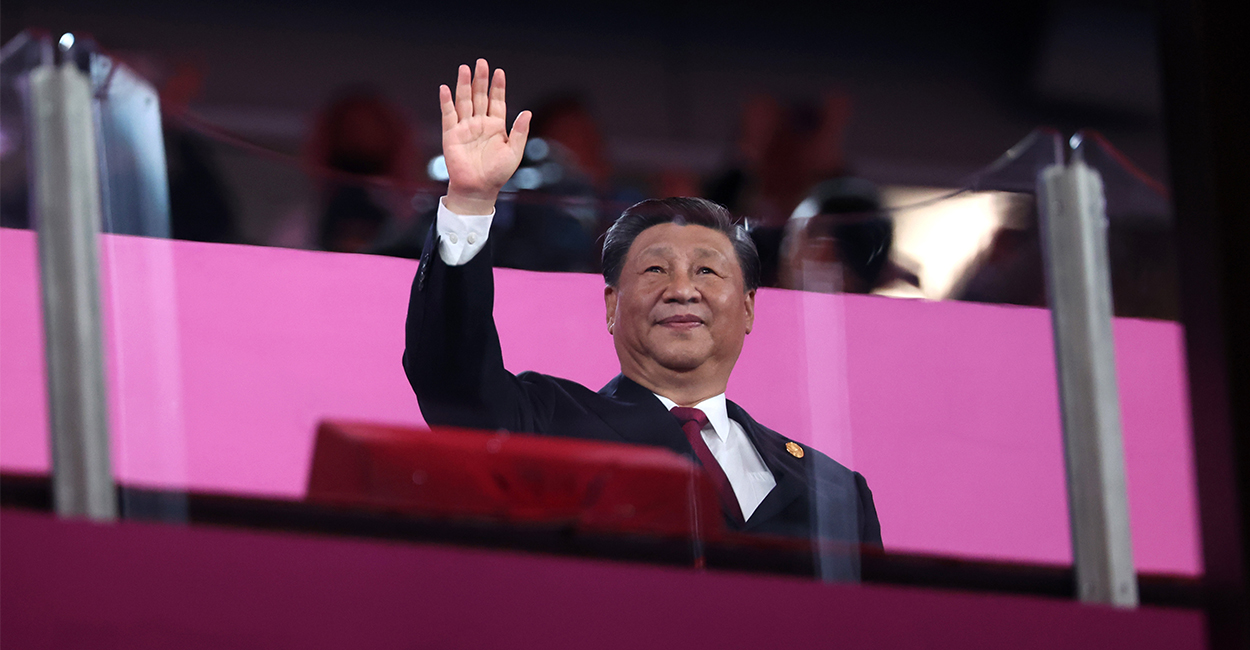 |
| Photo: Shi Tang/Getty Images |
From covering up the origins of the COVID-19 pandemic to using dangerous apps like TikTok to compromise Americans’ personal information, the Chinese Communist Party has long cloaked its nefarious activities in secrecy.
As a new report from The Heritage Foundation assesses, China’s lack of transparency is part of a larger strategy to deceive its adversaries. Based on data pulled together from various sources, the report exposes many things China has gone to great lengths to hide, including its inhumane practices in Xinjiang, its influence operations to distort global media, and the unreported millions of Chinese citizens who likely died from COVID-19 within its borders. (The Daily Signal is Heritage’s news and commentary outlet.)
The 2024 China Transparency Report assesses the current state of the People’s Republic of China’s transparency on eight key issues: its economy, energy and the environment, human rights, influence operations, the military, outbound investment into other nations, politics and law, and technology.
In each section, the report reviews the data China makes publicly available—the information China wants the world to know. But that data alone does not tell the full story. To get a better understanding of what is really happening, the report surveys nearly 100 private and nongovernmental databases, reports, and researchers that shed light on the reality in China.
The report includes many eye-popping statistics. For example, despite publicly claiming to be adopting environmentally friendly policies, China is rapidly adding to its already existing 1,100 coal plants, while the U.S. has fewer than 250. And while China reports an annual defense budget of around $225 billion, the true figure is likely to exceed $700 billion.
The report also includes essays from distinguished experts that dive deeper into subjects such as human rights, the U.S. defense industrial base, influence operations in the Pacific, Wall Street financing, COVID-19 cover-ups, and Chinese inner-circle politics. --->READ MORE HERECongress wants to ban China's largest genomics firm from doing business in the U.S. Here's why:
Intel officials have warned China is grabbing U.S. genetic info that could be used to create targeted bioweapons that would work against one group and not another.
Bipartisan legislation was introduced in both houses of Congress Thursday that would effectively ban China’s largest genomics company from doing business in the U.S., after years of warnings from intelligence officials that Beijing is gathering genetic information about Americans and others in ways that could harm national security.
The bills, backed by leaders of the House Select Committee on the Chinese Communist Party and the Senate Homeland Security Committee, target BGI, formerly known as Beijing Genomics Institute, which in 2021 was blacklisted by the Pentagon as a Chinese military company. Five company affiliates also have been sanctioned by the Commerce Department, which accused at least two of them of improperly using genetic information against ethnic minorities in China.
In an exclusive interview with NBC News, Rep. Mike Gallagher, R-Wis., and Rep. Raja Krishnamoorthi, D-Ill., said their legislation would ban BGI — or any company using its technology — from federal contracts, a move the company said in a statement would “drive BGI from the U.S. market.”
BGI “remains a leading supplier of genetic sequencing equipment within the American market,” Gallagher said. “We think that’s a bad idea. And that’s what we’re trying to stop.”
Similar legislation was introduced in the Senate by Gary Peters, D-Mich., who chairs the Homeland Security Committee, and Bill Hagerty, R-Tenn. With bipartisan, bicameral support, the backers say the bills have a good chance of becoming law.
“This bill will protect Americans’ personal health and genetic information from foreign adversaries who have the ability and motivation to use it to undermine our national security,” Peters told NBC News.
In a statement, BGI said it “fully supports protecting personal data, but the legislation which will effectively drive BGI from the U.S. market will not accomplish this goal, and rather will restrict competition, raise health care costs, and limit access to technologies.”
The company said it “does not operate clinical laboratories or collect patient samples, and has no access to personal or genetic data,” and “none of BGI is in any way controlled by or linked to the Chinese government or the military.”
Krishnamoorthi said the evidence suggests otherwise. --->READ MORE HERE
If you like what you see, please "Like" and/or Follow us on FACEBOOK here, GETTR here, and TWITTER here.


No comments:
Post a Comment